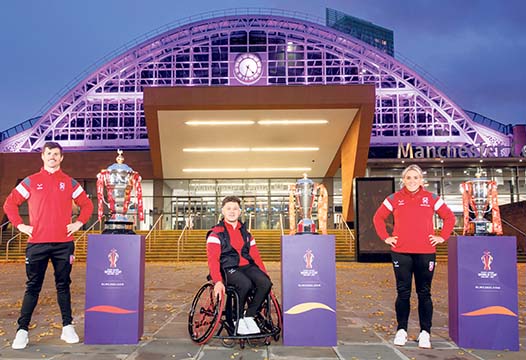 The schedule for next year's Rugby League World Cup was released in full last Friday as the tournament relaunched exactly one year before it will finish.
Alongside that Jon Dutton and Chris Brindley, chief executive and chair respectively of RLWC2021, hosted a press conference and took questions on a range of topics, including the mammoth task o
The schedule for next year's Rugby League World Cup was released in full last Friday as the tournament relaunched exactly one year before it will finish.
Alongside that Jon Dutton and Chris Brindley, chief executive and chair respectively of RLWC2021, hosted a press conference and took questions on a range of topics, including the mammoth task o Everything that was said at the Rugby League World Cup relaunch
 The schedule for next year's Rugby League World Cup was released in full last Friday as the tournament relaunched exactly one year before it will finish.
Alongside that Jon Dutton and Chris Brindley, chief executive and chair respectively of RLWC2021, hosted a press conference and took questions on a range of topics, including the mammoth task o
The schedule for next year's Rugby League World Cup was released in full last Friday as the tournament relaunched exactly one year before it will finish.
Alongside that Jon Dutton and Chris Brindley, chief executive and chair respectively of RLWC2021, hosted a press conference and took questions on a range of topics, including the mammoth task o 